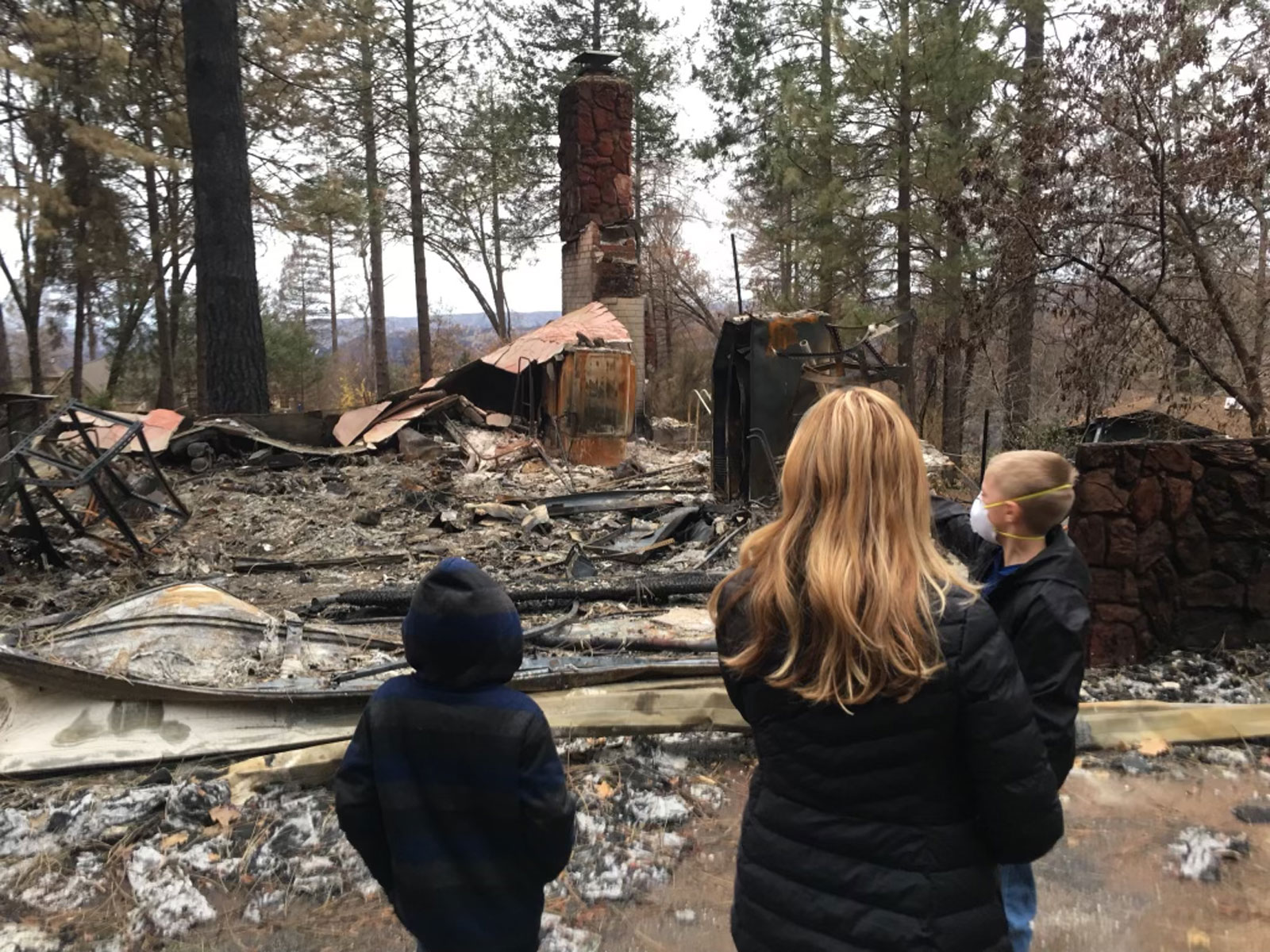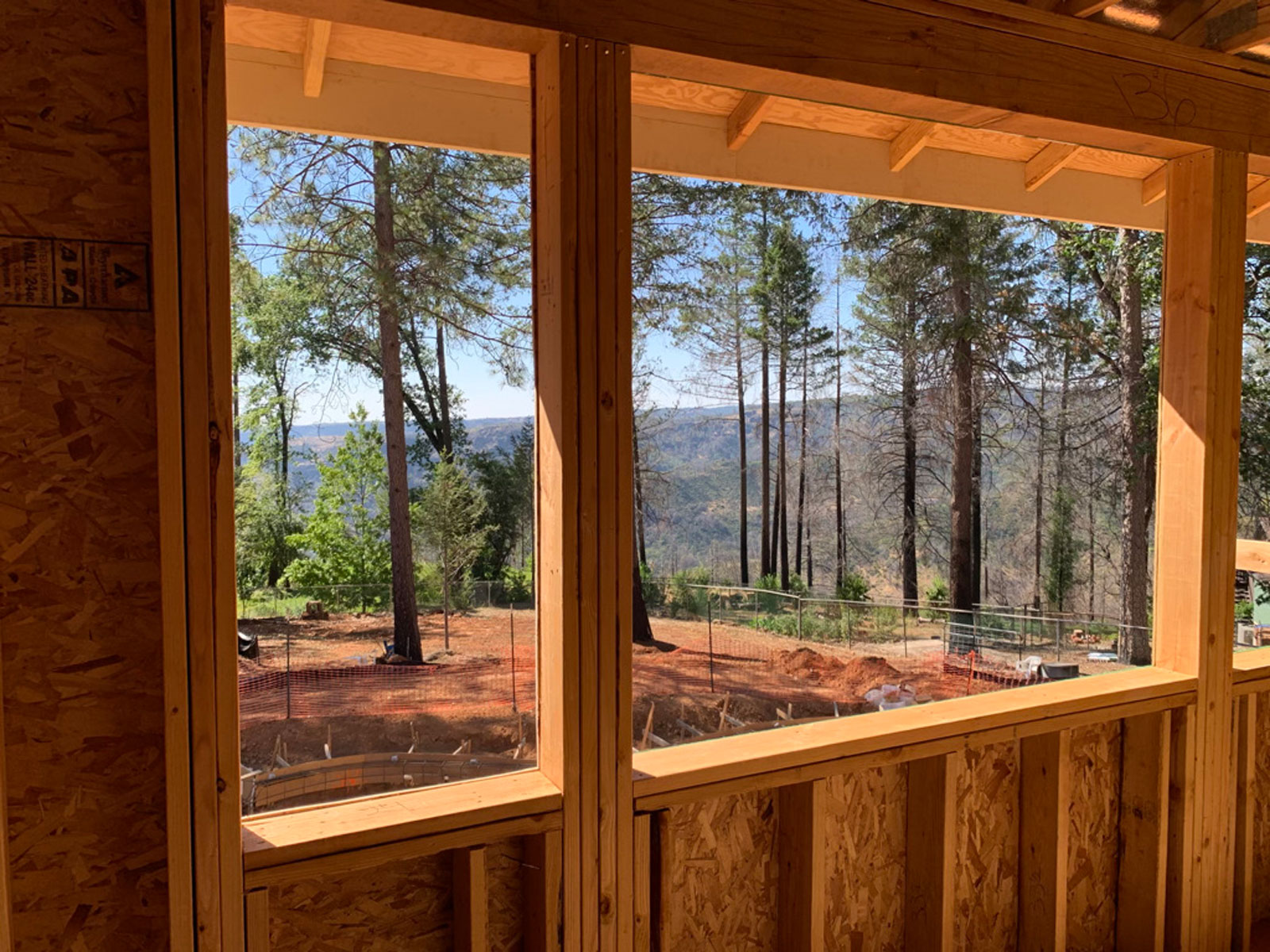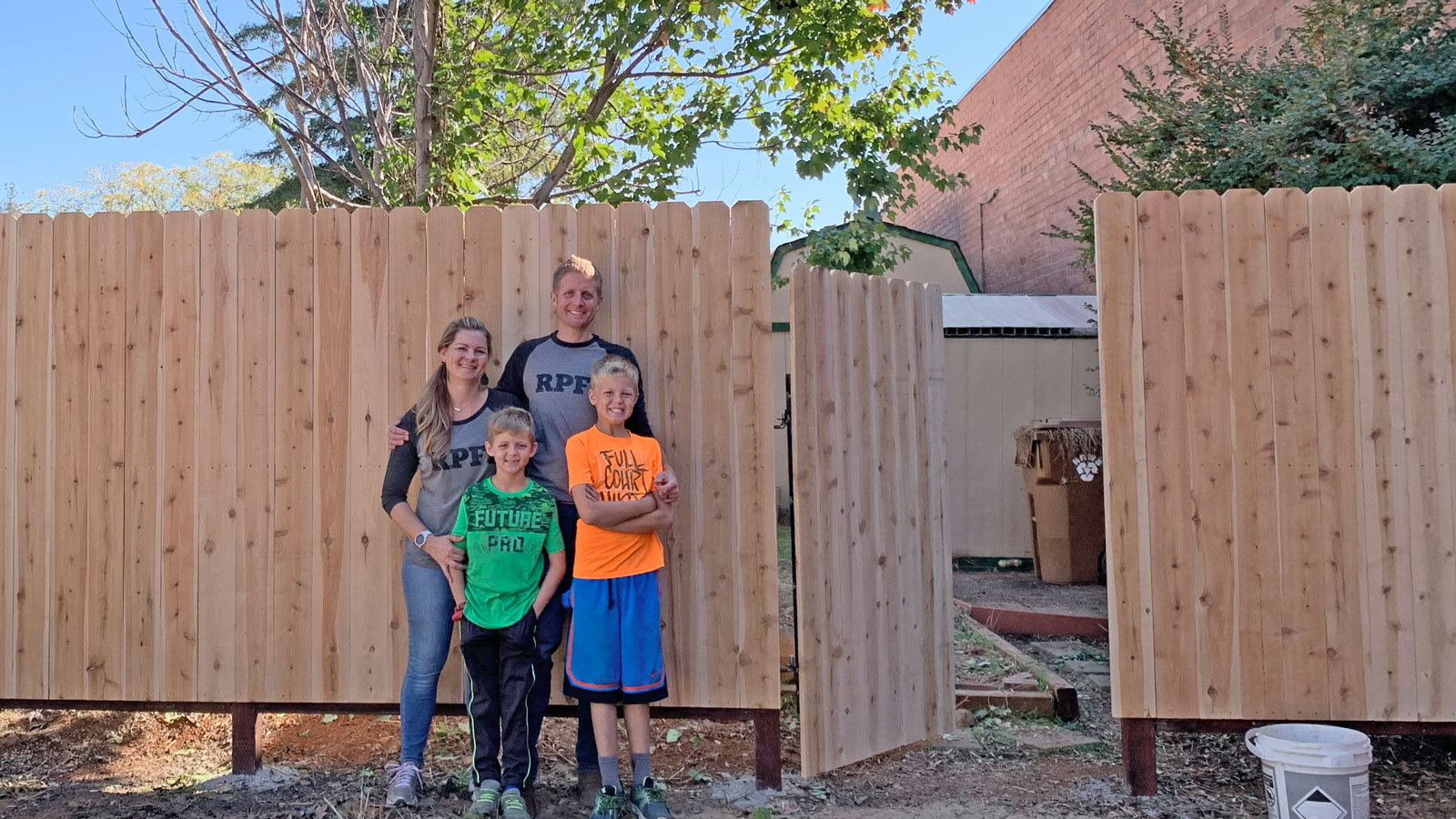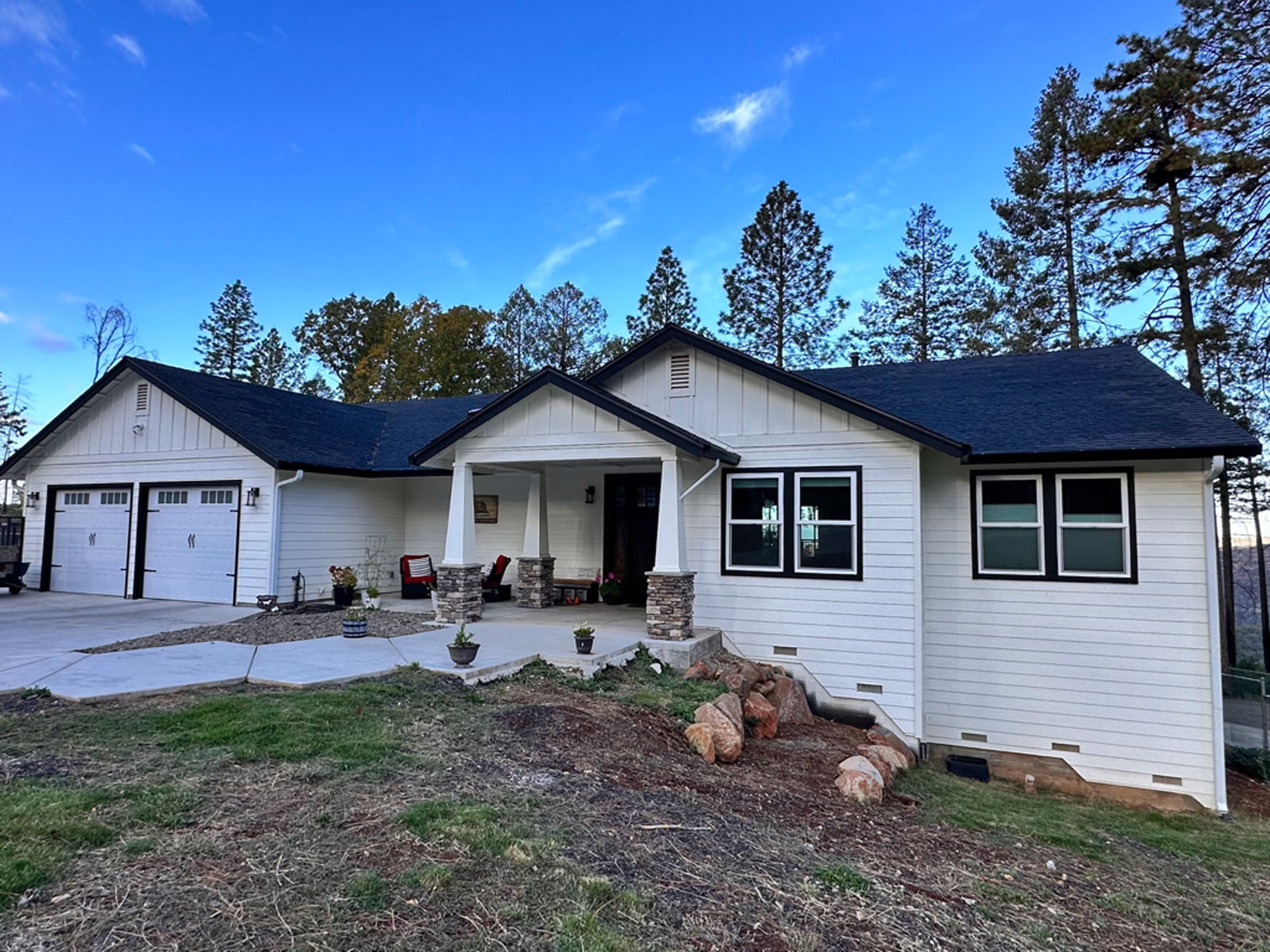Five years after the Camp Fire, a survivor reflects on Paradise’s recovery
This article was originally published by Grist.
AfroLA’s Take
Learning to come together as a community in a time of tragedy is an essential part of life in California, and everywhere. Community organizations like those mentioned in this article are a wealth of resources for families and individuals in need.
On the morning the Camp Fire destroyed Paradise, California, Charles Brooks was getting his kids ready for school. His eldest son, who was eight at the time, came into his room to say he smelled smoke. But Brooks didn’t smell it.
The sky darkened as they drove to school, and before long, ash was falling from the sky. Brooks decided to turn back, and as he pulled into the driveway, the school called to say classes were canceled.
“That phone call was really important,” he told Grist, “because if we had all dropped off our kids at school that morning, with what happened, we never would have gotten back to them.”
Ash began to fall so hard it sounded like rain. A burning stick landed at Brooks’ feet. “At that point I was like, ‘Hey, I think we’re out of here,’” he said.
He told the boys to pack two days of clothes and a favorite toy. He filled a bag for himself and his wife, who had already left for work in nearby Chico, and grabbed the dog. It took hours to get out of Paradise. Calls to his wife kept dropping. Fires broke out in the yards of homes as they passed. When he learned later that some evacuees drove through tunnels of fire as they fled, he felt fortunate his children hadn’t endured that.
“It was just an awful, awful experience that I would never want another person to have to go through,” Brooks said. “But many people have since. In Lahaina, California, Colorado, Oregon, lots of people have gone through a very similar experience.”

The Camp Fire, sparked by a faulty transmission line on Nov. 8, 2018, killed 85 people and burned 14,000 homes. It destroyed 95% of Paradise and the neighboring town of Concow, and remains the deadliest fire in California history.
Brooks and his family lost their home that day. Almost immediately, they resolved to rebuild, and Brooks soon founded the Rebuild Paradise Foundation. It has helped hundreds of families by providing grants for building costs, like engineering fees, not covered by insurance and government assistance, and free resources, like residential floor plans pre-approved by the city building department. Last year, the foundation awarded more than $1 million to families.
Grist called Brooks, who is board chair of the foundation, to see how, five years later, his family and his town are doing. He was on his way to repair the iconic “May You Find Paradise” sign that greets drivers as they enter town. It had burned in the fire and been restored, but was damaged in last winter’s storms. “People couldn’t wait for it to be back up,” he said. “It looks a little different than it did before, but it’s going to survive.”
The same is true for Paradise. The town, once home to around 26,000 people, dwindled to only 1,000 or so after the fire. In the years since, more than one-third of the pre-fire population has returned, and some 3,000 housing units have been built. Brooks reflected on what the anniversary means to his family, what Paradise looks like now, and how in the age of wildfires, impacted communities can find ways to thrive again. His comments have been edited for length and clarity.
The Paradise we loved, the Paradise we lost
We moved to Paradise in 2004, before we were married. My wife and I were living and working in Chico, and the only place where we could afford to buy a house was Paradise. That was the story of a lot of people who lived here. We got a tiny fixer-upper. Within the first year, we fell in love with the community. Our neighbors were wonderful people, the type of people who would take your trash can down if you were gone on vacation. We gave neighbors eggs from our chickens. They gave us honey.
When we wanted to start a family, we moved to the house that we ended up losing in the fire. It was a fixer-upper too, a small four-bedroom house on half an acre.
It was completely destroyed. We had a friend who worked for one of the utility companies who was getting back in the next day to survey damage for his company. He asked me if we’d like to know if we lost our house. That poor guy talked to at least two dozen people to let them know that they lost their home. That’s like being the grim reaper.
It just sucked. You work most of your young adult life to finally get a piece of the dream of owning a home. And then something that you put all your blood, sweat, and tears into, where your kids took their first steps … our kids had only known that home. Those types of things come up at random times and weigh on you pretty hard.

Believing in the rebuild
We learned that we lost our house late morning on Friday, the day after the fire had started. That afternoon I told my wife, “Hey, I think we should rebuild.” She said OK.
The next week, we dragged ourselves to an architect’s office, exhausted, not knowing anything that we wanted. I think it took us two months for us finally to get up the courage to go back and start talking about what we wanted.
During that time, we were going through the emotions of whether to really rebuild. It took almost a month before we could get back up and see our property. With everything we were hearing and seeing through the media and pictures, it seemed like the town was completely destroyed. Everybody was saying there was no chance for Paradise.
But then you started seeing videos of how the Holiday Market survived. The Ace Hardware survived. You started seeing little glimmers of hope. There was this point in time when we said, “You know what? We absolutely love it there. The people are amazing. We can do this.”

The missing middle
My wife and I started talking about how we needed to do more. We started making posts and sharing pictures on social media of the little glimmers of hope.
A friend saw what we were doing and introduced me to this incredible woman, Jennifer Gray Thompson, who started the Rebuild North Bay Foundation to help people in Santa Rosa recover after the Tubbs Fire. She told me, “I can share with you what we’ve done down here, but your disaster is completely different. You have to do what makes sense for your community.”
We knew that the government was going to develop programs for the non-insured and underinsured, programs for low-income and extremely low-income people. But working folks who were kind of lower-middle class, working paycheck to paycheck, were facing housing replacement costs that had skyrocketed because of disaster economics.
At the same time, all these costs started showing up that FEMA and insurance were not going to address. We wanted to build a program around these gaps, and to develop programs that helped “the missing middle,” the group of people who are above typical assistance but not able to afford market-rate housing.
The foundation’s volunteers were going through this in parallel. So we knew that was what other people were going through. So many people have reached out to the foundation over the years to say, “I can’t believe you thought about this. It was such a lift to know that somebody else recognized how hard it is to do this.”

Building back smarter
There’s a heightened level of awareness that you have after going through something like this.
We’ve learned a lot. The collective consciousness of the community is very fire adapted, fire aware. When you drive around town, you can see that in the way that builds are done. You’re seeing innovation. People are really paying attention to defensible space.
Our community is installing an early warning system. In case your cell phone goes down, which we saw on that day, there’s also an audible alert that lets you know. All of our utilities are going underground. The schools have more robust plans in place.
Our parks department is working with fire scientists to create buffer zones. They’re acquiring property, getting rid of thick vegetation and developing parks that are maintained and that are large enough that people can use them as safety zones.
We have people who are really focused on learning from Indigenous practices of how to work with the land. They’re learning about the cultural practices of Native Americans. We’re doing burning in a way that actually benefits the environment and reduces fire severity. Last week there were eight prescribed burns, some of them up to 8,000 acres, in our area. Five years ago, in the greater Northern California area, that never happened.

Our Paradise today
Now that we’re back, it’s absolutely amazing. It’s really cool to see houses everywhere. There’s about 600 under construction.
Then you’ve got the vibrancy of the community. As soon as they could, the chamber of commerce brought back our weekly Party in the Park and farmers market. The community comes out and sits on this big grassy hill, listens to a band playing. Kids are dancing.
Paradise was known as a retirement community, but now you notice a lot more families. There are a lot of people who are moving here because it’s still more affordable than other places in California.
The landscape looks a lot different. There used to be pine trees everywhere. We lost hundreds of thousands of trees that burned or were removed. But now almost anybody in Paradise has a sunset or a sunrise view, which is really neat.
There’s still a ton of challenges to rebuilding, and those are always going to be there. You just can’t build a home for the prices you used to. People are having to build back smaller, and get creative.

Grieving is a process
For the community, there’s been a lot of working through it. Now the big thing for us is how far we’ve come.
The recovery is different for everybody. My family and I are going to do a commemorative 5K run on Saturday. We talk about the fire openly. We don’t hide it from our kids. When they want to talk about it, we talk about it. We could go two months without talking about it, and then other times it’ll be a couple days in a row. Summertime can be a little bit triggering for the kids, especially if there’s smoke and if there’s planes flying around.
There are tributes to the people we lost, and more are being planned and built. But along with never forgetting, I think the best way we can honor the people that called Paradise home is by making Paradise home again. Rebuilding a place that people want to call home is honoring the people that lost their lives, because we’re recreating what people loved.
© Grist

